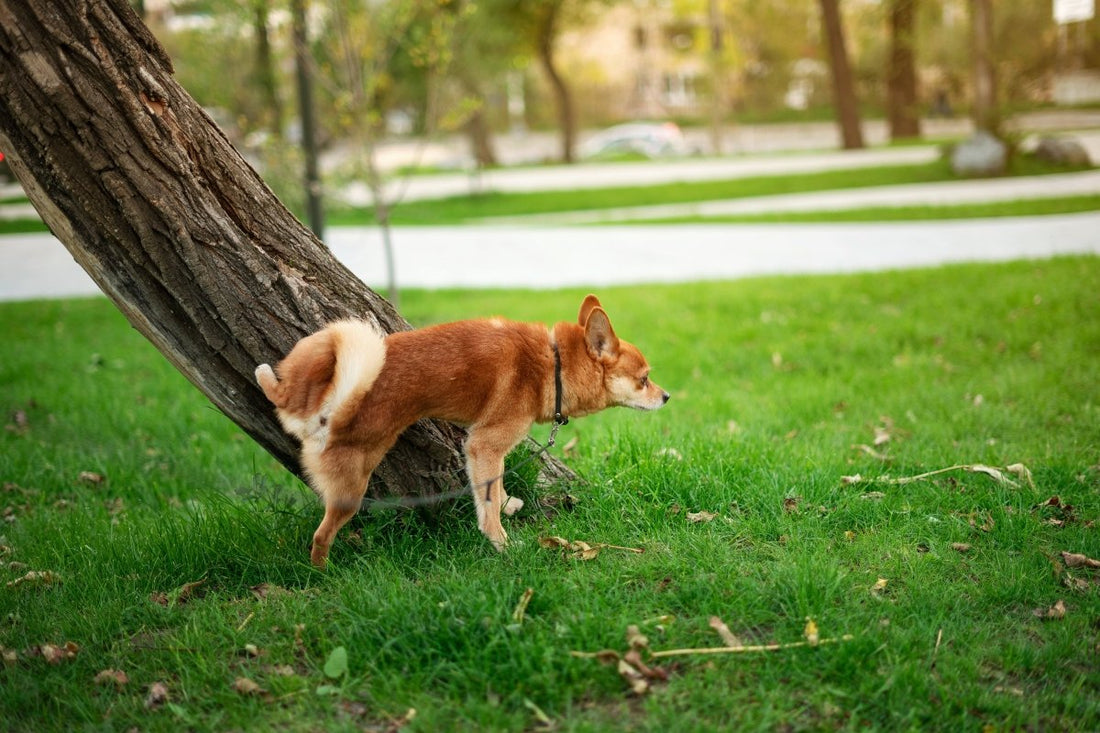Dogs are wonderful companions who continually surprise us with their behavior. A common behavior many dog owners observe is pawing—whether after peeing, before bedtime, or seemingly for no reason at all. But why do dogs do this? In this article, you'll learn what's behind this behavior, which instincts play a role, and what it means for you.
Why dogs scratch outside – especially after peeing
If your dog paws after peeing or defecating, there's more to it than meets the eye. This behavior has its roots in nature and is often interpreted as marking behavior .
1. Scent marking through glands on the paws
Dogs have sweat glands between their paw pads that secrete pheromones. By scratching, they rub these pheromones into the ground, thus reinforcing their scent mark.
- Reinforcement of territory marking: After peeing or defecating, scratching serves to make it clear to other dogs: “I was here!”
- Communication with conspecifics: Pheromones contain a lot of information, such as the dog's gender, state of health and mood.
2. Visual markings in the ground
In addition to the scent, scratching leaves visible marks in the ground. These marks reinforce the marking and make it visible even to dogs further away.
3. An ancient instinct
Scratching is deeply ingrained in the instincts of many dogs. In the wild, this behavior helped wolves and other wild dogs mark and defend their territory. Even if your dog has no reason to protect his territory, he'll still follow this natural behavior.
Scratching in the house: Why does your dog scratch at his sleeping place?
Many dogs also scratch at their sleeping spot before lying down. This behavior also has instinctive reasons.
1. Nest building behavior
In nature, wolves and wild dogs scratch to create a comfortable and protected nest. Your dog will follow this behavior, even if his bed is already comfortable.
2. Temperature regulation
In the wild, dogs scratch to cool or warm the ground before lying down. This instinct can even come through indoors.
When does scratching become problematic?
Although scratching is normal behavior, it can sometimes become problematic.
1. Excessive scratching
If your dog is pawing constantly and intensely, it could be a sign of stress, boredom, or even pain. Observe your pet closely and watch for further behavioral changes.
2. Scratching in unwanted places
If your dog is scratching furniture or carpets, you can gently redirect him. Offer him alternatives like a blanket or pillow on which he can romp.
How should you react to the scratching?
- Accept the behavior: Scratching is part of your dog's nature. As long as it's not excessive, there's no reason to worry.
- Offer alternatives: If the scratching becomes annoying, distract your dog with a command or a toy.
- Avoid punishments: Your dog acts on instinct, so you should not punish him if he scratches.
Conclusion: A look into your dog's instincts
Your dog's pawing isn't random behavior; it has deep-rooted causes. Whether it's marking territory, building a nest, or acting on instinct, pawing is a fascinating part of his natural behavior. Understanding this behavior will help you better understand and support your dog.



